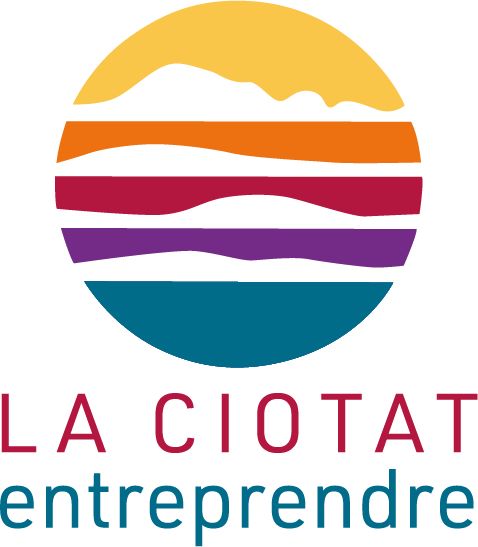
Allgovtjobz
FollowOverview
-
Date de fondation 16 décembre 1908
-
Secteurs Distribution
-
Posted Jobs 0
-
Vues 64
L'entreprise
Please Visit that website For Details
Under the Employment Standards Act, 2000 (ESA), companies can need an employee to provide evidence sensible in the scenarios that they are entitled to authorized leave under the ESA.

Effective October 28, somalibidders.com 2024, employers can not need staff members to provide a certificate from a qualified health specialist (a medical note). A « certified health professional » is an individual who is certified to practice as a physician, registered nurse or psychologist under the laws of the jurisdiction in which care or treatment is supplied to the worker.

ESA maximum fines
A prosecution might be begun under Part III of the Provincial Offences Act where a person is thought to have actually devoted an offense under the ESA. If convicted, a person might be based on a fine or a term of jail time or both.
As of October 28, 2024, the optimum fine for individuals convicted of contravening the ESA has increased to $100,000 (up from $50,000).
Definition of staff member
The Employment Standards Act (ESA) specifies a worker to include a person who:
– performs work for an employer for salaries
– materials services to a company for salaries
– receives training from a company, if the skill they’re being trained on is an ability used by the employer’s staff members
– is a homeworker
– was a worker
On March 21, 2024, the meaning of « training » was broadened to consist of work carried out throughout a trial period. A staff member now includes an individual who performs work during a trial period for a company, if the skills being examined throughout the trial duration are skills used by the employer’s employees or could be utilized by staff members if there are no other workers. This implies the hours worked during the trial duration need to be counted as work time. Learn more about what counts as work time.
Deductions from wages
The ESA prohibits employers from making reductions from wages when the company had a money scarcity, lost property or had actually home taken and an individual other than the employee had access to the cash or property.
On March 21, 2024, the ESA was changed to validate that this consists of reductions from salaries in « dine and dash », « gas and dash » and other comparable circumstances.
Payment of incomes – direct deposit
The ESA needs companies to pay earnings by money, cheque or direct deposit. If the earnings are paid by direct deposit, the account should be in the employee’s name and nobody besides the worker can have access to the account, unless the employee has licensed it.
Effective June 21, 2024, an extra requirement will be in place if the employer wants to pay incomes by direct deposit: the account needs to be selected by the employee. This means the worker must choose which account to use and the company can not restrict a worker’s area by, for instance, needing the employee to use an account at a particular banks.
For payments that are to be made after June 20, 2024, a worker can choose the account where their salaries are to be deposited. If a company formerly limited an employee’s account selection – for example, by requiring them to use an account at a specific banks – it is the company’s duty to verify the employee’s choice of their preferred account before they make the next payment after June 20, 2024. A worker can likewise notify their employer that they desire their wages transferred to a different account and, when that happens, the employer must make the change.
Vacation pay arrangements
The ESA enables an employer to pay vacation pay to an employee on every pay cheque as it accumulates or at any agreed-upon time, however just with the arrangement of the worker. Learn more about when to pay getaway pay.
Effective June 21, 2024, the ESA is changed to clarify that the staff member needs to make a contract with the company in order for the company to be able to pay holiday pay on every pay cheque or at an agreed-upon time. This confirms that such agreements can not be spoken and must be made in writing (including electronically), constant with how the ministry imposes the ESA.
Tips or other gratuities – approaches of payment
Beginning June 21, 2024, employers will be required to pay tips or other gratuities by either:
– money
– cheque
– direct deposit
If payment is by cash or cheque, the employee needs to be paid the ideas or other gratuities at the workplace or at some other place consented to digitally or in by the worker.
If payment is made by direct deposit, the account must be selected by the worker and remain in the employee’s name. Nobody aside from the employee can have access to the account, unless the staff member has authorized it.
The requirement that the staff member pick the account implies the employee needs to decide which account to utilize, and the employer can not restrict a staff member’s selection by, for example, requiring the worker to use an account at a particular banks.
For payments that are to be made after June 20, 2024, an employee deserves to pick the account where their tips are to be transferred. If a company formerly limited an employee’s account choice – for example, by requiring them to utilize an account at a particular banks – it is the employer’s obligation to verify the staff member’s choice of their desired account before they make the next payment after June 20, 2024. A worker can likewise alert their company that they want their pointers deposited to a different account and, when that happens, the employer must make the modification.
Tips sharing policy
The ESA permits companies, in addition to directors and shareholders of a company, to share in tips, if defined criteria are satisfied.
Effective June 21, 2024, where an employer has a policy about the company, director or investor of the employer, sharing in a tip swimming pool, the employer will be needed to publish a copy of that policy in a clearly visible place in the workplace where it is most likely to come to the attention of workers.
The requirement to post a policy does not need an employer to establish a policy. It uses if a company has a written policy in location or if an employer has a recognized practice of sharing in a suggestion pool that is consistently applied (even if it’s not composed down). If the company has an unwritten but recognized, consistently-applied practice in location, the employer must put the policy in writing and publish a copy of the policy.
The ESA does not define the information that must appear in the policy, as long as the posted document is a true copy of the policy that remains in location and referall.us clearly states that the company or a director or shareholder of the company shares in the tip swimming pool.
Effective, June 21, 2024, employers will also be required to keep a copy of every suggestions sharing policy that is required to be posted for 3 years after the policy stops being in effect.
Job publishing requirements
On a date to be set by pronouncement of the Lieutenant Governor, modifications will enter force that establish brand-new requirements for companies connected to publicly marketed job postings.
Temporary help firm and recruiter licensing
Beginning on July 1, 2024 under the Employment Standards Act, 2000 (ESA):
– Temporary help companies are needed to hold a licence to operate.Clients are restricted from purposefully engaging or using the services of a temporary aid company unless the company holds a licence. (Find out more about the relationship in between short-term assistance companies and customers.).
– Employers, prospective companies and other recruiters are prohibited from intentionally engaging or using the services of any employer that does not hold a licence.
Where applications are made before July 1, 2024 and a decision is pending, there is a transitional guideline that will apply.
On April 29, 2024, O. Reg. 99/23 – Licensing Temporary Help Agencies and Recruiters was amended. The modifications include:
– Adding a surety bond as a brand-new acceptable kind of security for all candidates,.
– excusing specific recruiters from the security requirement under specified conditions,.
– altering the application fee and security requirements for entities using both for a temporary aid firm and an employer licence.
The ministry’s licensing web page has been updated to show these modifications. Please check out that website for details.


